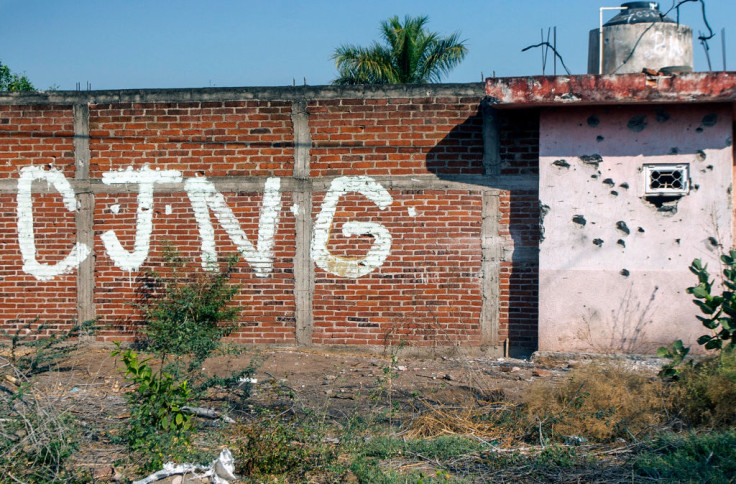
Last week, The Latin Times reported of a popular trend seen on TikTok that involved young adults posting videos expressing their wish to become cartel hitmen for the Cártel Jalisco Nueva Generación (CJNG).
"I am 21 years old and I am going to work as a sicario for the Cártel Jalisco Nueva Generación. Nobody is forcing me, I am doing it of my own free will...I am from the State of Mexico," one of the videos shared by a man identified as Ángel "N" said.
“Tengo 21 años, voy a trabajar de sicario para el Cártel Jalisco Nueva Generación. Nadie me obliga”: jóvenes difunden videos para unirse voluntariamente al CJNG https://t.co/kgoAVjqC4X pic.twitter.com/nlDhl1NL4f
— Milenio (@Milenio) March 27, 2025
Just like Ángel, dozens of other TikTok users published a similar video in which they announced their intentions of joining the Jalisco cartel's "Comando Calavera," a criminal cell that operates along the state borders of Michoacán and Jalisco.
"I am 32 years of age, I live in the State of Mexico and I am going to become a sicario for the four letters (referring to the CJNG)," a woman identified as Guadalupe said in another video. "I am going on my own free will and I am going to join the operations for the Comando Calavera," she added.
And according to Mexican journalist Antonio Nieto, the criminal cell referred by TikTok users as "Comando Calavera" is part of the Jalisco cartel's recruiting network in the Jalisco municipalities of Puerto Vallarta, Tala and Teuchitlán, where earlier this month authorities found a property that was allegedly used by the criminal organization as a training and extermination center.
Nieto, who was able to infiltrate a WhatsApp group used by the Jalisco cartel to recruit young adults all over Mexico, said that alleged cartel members share job offers that includes free housing and meals. As stated by Nieto, they are told training lasts about a month and a half and that they will remain isolated during that time.
Así recluta el CJNG para llevar a miles de jóvenes a campos de adiestramiento como el de #Teuchitlán @GobiernoJalisco:
— Antonio Nieto (@siete_letras) March 17, 2025
Todo comienza con una invitación a un grupo de WhatsApp. Te demuestran que es REAL.
Mandan por ti donde quiera que estés. Esta fue mi experiencia (HILO). pic.twitter.com/CDAGRi7p3l
Once the cartel has convinced a new recruit to join on their own free will, they are picked up by taxi who then takes pictures of the individuals and sends them to another group. According to records shared by Nieto, among the names mentioned in text messages is the name of an individual known as "K-20" or "Kalavera," who is allegedly a Colombian national serving as a commander for the CJNG.
The man identified as "Kalavera" is also mentioned in a corrido —a traditional Mexican song that tells a story about historical events, social issues or people— interpreted by the group Cross Norteño. The song makes allusion to the high-profile role of "Kalavera" within the recruitment network for the Jalisco cartel as well as mentioning his relationship with Nemesio Oseguera Cervantes, alias "El Mencho," leader of the Cártel Jalisco Nueva Generación.
Although he has not been officially identified by authorities, claims of "Kalavera" being a Colombian national working for the Jalisco cartel are supported by reports that surfaced earlier this year about how the CJNG was using fake body guard job postings to attract former Colombian soldiers due to their expertise in installing and producing landmines.
"Soldiers in Colombia have knowledge in all sorts of equipment, including explosives. We know how to activate and deactivate them, as well as how to produce them. That is why we are so sought after by Mexican cartels," one man recruited by the Jalisco cartel told Animal Político in February.
© 2025 Latin Times. All rights reserved. Do not reproduce without permission.










